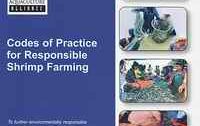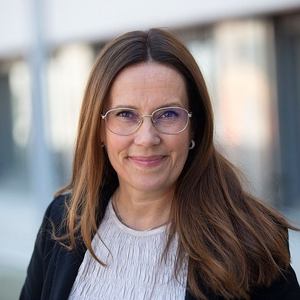Global Aquaculture Alliance Supports FAO Shrimp Farming Principles
The Global Aquaculture Alliance supports adoption of the International Principles for Responsible Shrimp Farming under review by the FAO Sub-committee on Aquaculture as a basis for the continued sustainable growth of aquaculture. The principles will set an important standard upon which international government bodies will formulate national policies and regulations for aquaculture.
"These principles will lead to wider acceptance and greater implementation of responsible aquaculture practices around the world," said Dr. George Chamberlain, Global Aquaculture Alliance president. "As GAA has seen through its membership's growing appreciation for the value of sustainability, producers are increasingly improving their operations through better environmental, social and food safety practices."
Chamberlain participated in an FAO expert consultation on shrimp farming in Brisbane, Australia, in September 2000, where he shared copies of GAA's 1999 publication "Codes of Practice for Responsible Shrimp Farming" with other attendees. Many key elements of the FAO principles reflect those found in GAA's codes. Like the FAO principles, the GAA codes provide a standardized, yet flexible framework for responsible shrimp farming.
Since the release of its Codes of Practice for Responsible Shrimp Farming, GAA has implemented on an international scale several programs now endorsed in the FAO principles. After the codes were published, Dr. Claude Boyd -- who largely drafted the consortium principles, as well as the GAA codes -- performed an extensive review of international aquaculture standards that led to quantitative criteria for effluents. Additional farm-level research and consultations resulted in the establishment of GAA's quantitative Best Aquaculture Practices (BAP) standards.
Twenty-five farms have been certified to BAP standards by the Aquaculture Certification Council (ACC), the exclusive certifying agency for the BAP program. It has also certified 15 shrimp hatcheries and 40 processing plants to respective BAP standards. ACC and GAA continue to address such certification issues as inspection logistics and fee systems in producer countries with smaller farm systems. Through BAP technical committees, GAA is also developing standards for fish.
BAP certification has already been adopted by the global market. International companies like Wal-Mart Stores, Darden Restaurants, and Lyons Seafoods have specified Best Aquaculture Practices certification for their shrimp suppliers.
The Global Aquaculture Alliance will continue in a leadership role in seafood certification. In the near future, the BAP logo will appear on seafood products at the retail level to signal consumers that the items were produced in a responsible manner.
For additional information on the Codes of Practice or Best Aquaculture Practices programs, please visit http://www.galliance.org/code.html and http://www.gaalliance.org/bap.html.











